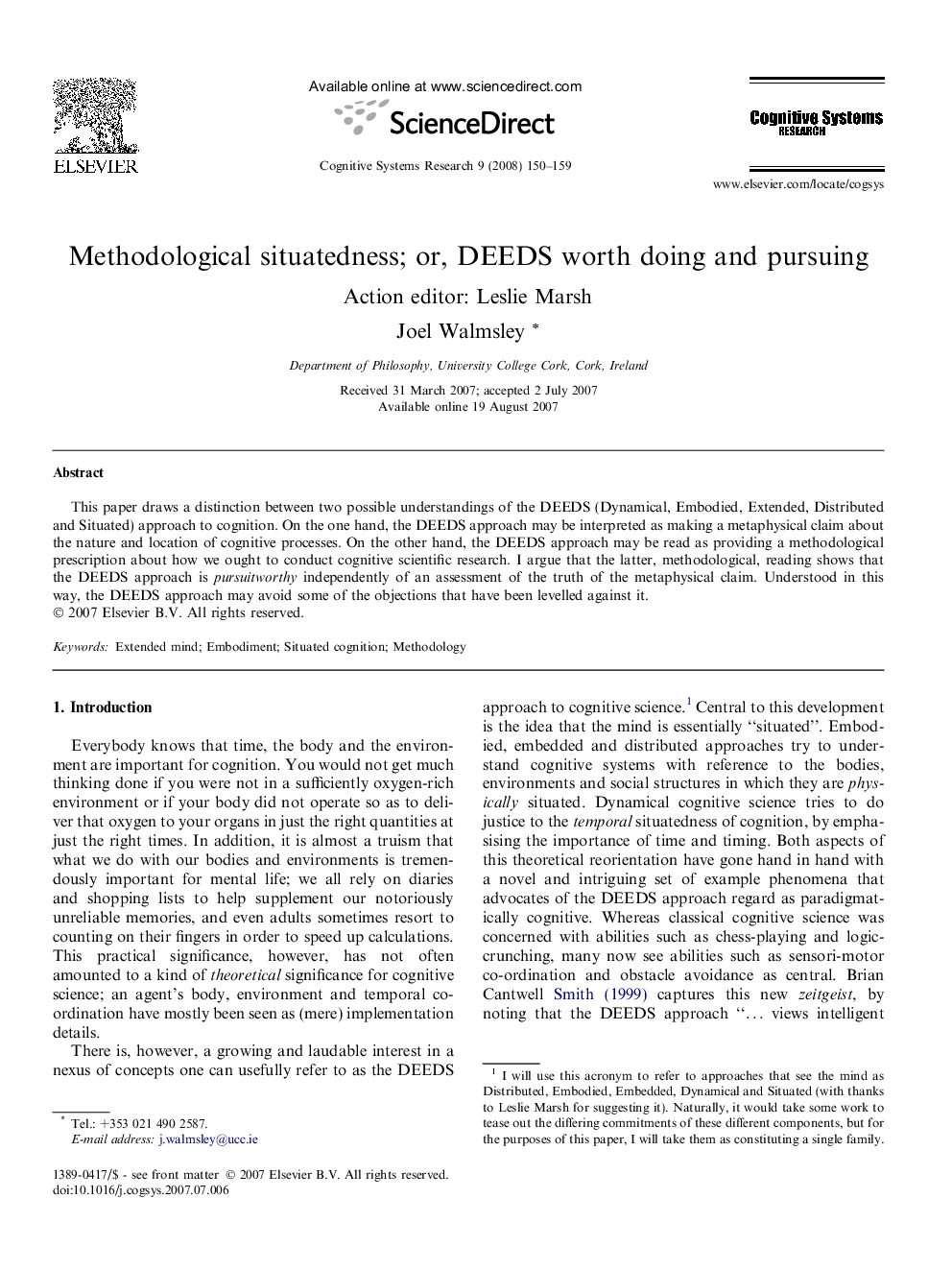| Article ID | Journal | Published Year | Pages | File Type |
|---|---|---|---|---|
| 378650 | Cognitive Systems Research | 2008 | 10 Pages |
Abstract
This paper draws a distinction between two possible understandings of the DEEDS (Dynamical, Embodied, Extended, Distributed and Situated) approach to cognition. On the one hand, the DEEDS approach may be interpreted as making a metaphysical claim about the nature and location of cognitive processes. On the other hand, the DEEDS approach may be read as providing a methodological prescription about how we ought to conduct cognitive scientific research. I argue that the latter, methodological, reading shows that the DEEDS approach is pursuitworthy independently of an assessment of the truth of the metaphysical claim. Understood in this way, the DEEDS approach may avoid some of the objections that have been levelled against it.
Related Topics
Physical Sciences and Engineering
Computer Science
Artificial Intelligence
Authors
Joel Walmsley,
